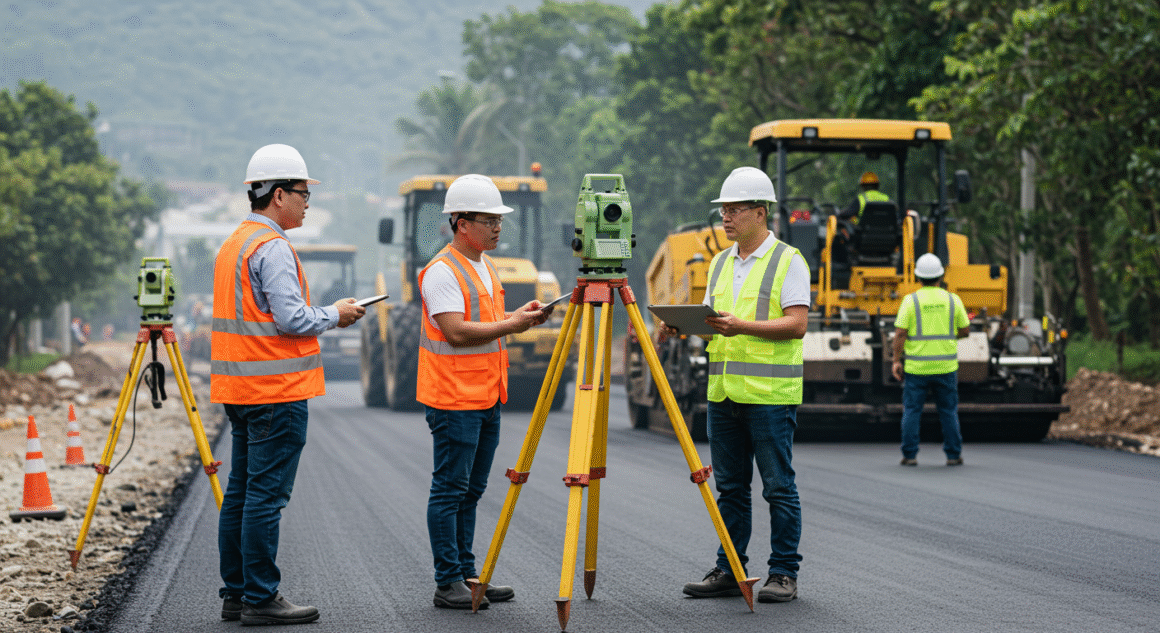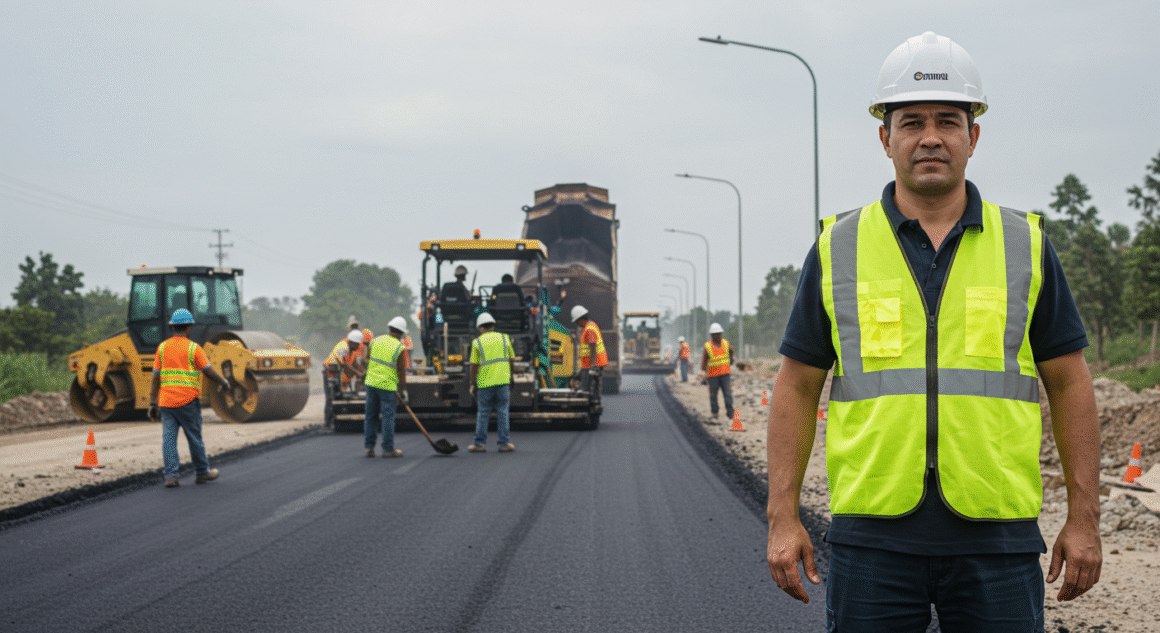Civil engineering is one of the oldest and most important branches of engineering that deals with the design, building, and maintenance of structures such as bridges, dams, roads, and buildings, and within this wide field road construction stands as one of the most visible and essential areas of work because roads connect people, support trade, and allow smooth transportation from one place to another, and without skilled professionals society would struggle to create safe, strong, and lasting roads that can serve communities for many years.
The Foundation of Road Construction and the Duties of a Civil Engineer
Road construction is not only about placing layers of asphalt or concrete on the ground but rather a long and detailed process that begins with understanding the land, studying traffic needs, preparing a suitable design, and then moving forward with proper construction, and at every stage a civil engineer plays a vital role because this professional not only plans the structure but also checks the quality of materials, supervises the workers, and ensures that everything is completed according to the right standards and legal requirements.
Planning, Design, and Civil Work Cost Estimation
When a new road project begins, one of the first duties for a civil engineer is to take part in the planning and designing process, and this requires careful analysis of the location, study of soil conditions, and decisions about what type of road should be built, for example whether it should be a highway, an urban road, or a rural path, and alongside the technical design there is another important duty which is civil work cost estimation, because governments, contractors, and private investors all need to know exactly how much money will be required for the entire project from the purchase of land and raw materials to the cost of machinery, fuel, and labor, and by preparing an accurate cost estimation the civil engineer helps to avoid financial losses, ensures that the project stays within budget, and allows authorities to plan funding realistically, which is why this duty is as important as the technical design itself.
Technical Knowledge Required in Road Construction
For a road project to succeed, the civil engineer must use deep technical knowledge because road construction is not only about drawing lines on paper but about working with natural and artificial materials, and one of the first steps is soil testing which helps to decide if the land is strong enough to carry heavy vehicles for many years, and if the soil is weak the engineer must suggest treatments or changes before construction starts. Civil engineers also decide the right mixture of aggregates, asphalt, and concrete for road surfaces, and they make sure drainage systems are planned so that water does not collect on the road which might otherwise cause accidents or damage the road layer, and in addition they follow safety rules, environmental regulations, and design standards that guarantee the road will serve both people and nature in a balanced way.
Skills of a Civil Engineer That Are Useful in Road Projects
Civil engineers who work on road construction are required to use a variety of skills that go far beyond classroom knowledge because in real projects there are hundreds of small and large decisions to make every day, and problem-solving ability helps them decide what to do when unexpected conditions appear, such as sudden rain or supply shortages, while leadership skills allow them to guide teams of workers, contractors, and machine operators so that everyone works together smoothly. Modern civil engineers also make use of advanced software that allows them to design roads digitally, calculate loads, and test possible structures in a virtual environment before starting real construction, and these digital tools reduce mistakes and improve efficiency.
Challenges Faced by Civil Engineers in Road Construction
Although the work of a civil engineer in road projects is rewarding, it is also filled with challenges because weather conditions often cause delays when rain or extreme heat damages the surface layers or makes it impossible for machinery to work properly, and in many cases, the cost of raw materials such as asphalt or fuel changes quickly, which leads to budget problems. Civil engineers must also face the difficulty of managing very large teams where workers come from different backgrounds and must be guided towards the same goal, and they are further responsible for following strict government rules, legal regulations, and quality checks, and failing to meet these standards can cause heavy penalties, accidents, or even the closure of the project.
Difference Between Civil Engineers and Other Professionals in Road Construction

In road projects many different professionals are involved, such as architects, construction managers, and site supervisors, but the role of the civil engineer is unique because while an architect may focus on appearance and a construction manager may focus on the schedule, the civil engineer is the person who combines design, safety, cost, and strength in one plan, and this professional not only prepares drawings but also checks soil, selects materials, guides workers, and ensures long term durability, which means that civil engineers are at the centre of every successful road project and their presence is necessary to connect the ideas of all other professionals into one strong result.
Future of Civil Engineers in Road Construction
The future of civil engineers in road projects looks very bright because new technologies are changing how roads are built and maintained, and in many countries, engineers are now working on smart roads that include sensors to guide vehicles, self-healing materials that repair small cracks by themselves, and eco-friendly designs that reduce pollution. Civil engineers are also needed in huge numbers as cities grow, populations increase, and more vehicles require stronger and wider roads. And with the rise of sustainable practices, civil engineers are learning new methods to reduce carbon emissions during construction and to create roads that use recycled materials, showing that their role is not only about building but also about protecting the environment.
Conclusion
From the very beginning of planning to the final inspection of the completed road, civil engineers hold responsibility for design, cost, quality, and safety, and their skills in technical knowledge, leadership, and financial planning make them essential figures in every road project. Without their presence, roads would either be unsafe, too expensive, or unable to last for many years, and this shows that the profession of civil engineering is not only connected with road construction but is at the very heart of it, shaping the future of transport and infrastructure for society as a whole.
FAQs
What is the role played by a civil engineer in road projects?
Civil engineers are responsible for the design of the road. This includes checking the soil, selecting materials, guiding workers, and ensuring that the road’s strength and durability.
How does a Civil Engineer estimate the road construction cost?
In order to determine the budget for a project, the civil engineer prepares a cost estimate for the work.
Why is civil engineering important for safe road design?
Civil engineers must adhere to strict rules of safety, technical standards, and design guidelines in order for roads to last many years.

